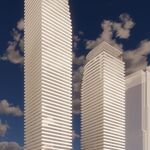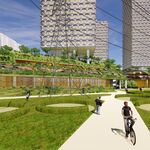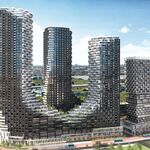rbt
Senior Member
It isn't compatible with Line 1 which right there is a big downer.
Toronto Rockets do not have a maximum operational elevation that this type of design (albeit larger scale) would go over.
It isn't compatible with Line 1 which right there is a big downer.
It isn't compatible with Line 1 which right there is a big downer.
I mean maybe we could've extended the subway to Steeles, then from there adopt an LRT routing from Steeles to Wonderland. That could've been an option. Political interests got in the way and overall we shouldn't be ungrateful for a subway the province is paying and York Region is subsidizing.
Another option could've been converting Sheppard to an LRT, buying an LRT vehicle that can operate in Sheppard's subway tunnel, connect Sheppard with Sheppard West, and send that line up to Vaughan.
But really, we are getting transit. There is no way we've came out of TYSSE as losers.
Other than the Evergreen Line, any whole new transit lines or extensions funded/under construction? Anything funded past 2017?Main Street Station Upgrade - 2015
Compass Card - 2015
New ART300 trains - 2015
New Westminster Station Upgrade - 2016
Evergreen Line - 2016
Commercial Broadway Station Upgrade - 2016
Joyce Station Upgrade - 2016
Hamilton Transit Centre - 2016
Metrotown Station Upgrade - 2017
There's also the Brighouse, Phibbs, Langley, Willowbrook, Guildford exchange construction/rebuild for 2016-2017.
Good one! Probably a good candidate for 2nd place.Possibly Denver.
Other than the Evergreen Line, any whole new transit lines or extensions funded/under construction? Anything funded past 2017?
I certainly hope the momentum doesn't abate because of this.Our superbly-transit-frustrated populace has buffered so many pending transit projects into the construction/funding/planned pipline -- that it is going to really spew out through the 2020s -- Toronto's transit statistics is going to turn quite a few North American heads by the end of the 2020s. We may yet cram even more into the pipeline in the coming years, so the number may actually exceed this even more, even with a few cancels (e.g. Scarborough).
Never "all".After that, who knows. When all that is completed it seems all of Toronto's transit woes from the first two decades of the century will be addressed.





